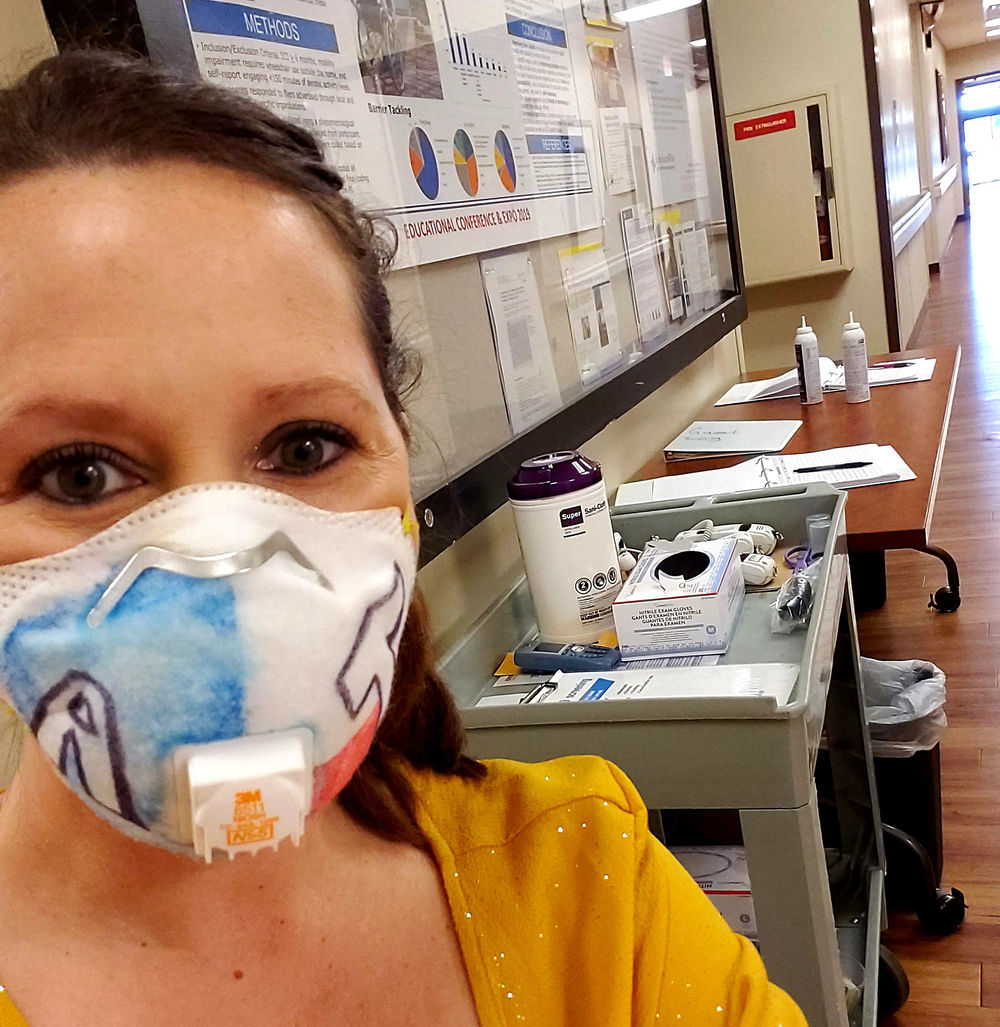Athletic programs everywhere are on pause as people stay home, but the skills that athletic trainers bring to public health are proving to be adaptable and vital amid the COVID-19 pandemic. Nichola St. James, a doctoral student in Temple's athletic training program, is among those making the pivot.
In a normal spring, St. James might be working at a sporting event, "making sure that everybody is safe and caring for any injured athletes," she says. Instead, she has been on the front lines of the healthcare system, screening patients and essential workers for COVID.
"Our role just looks a little different right now," she says.
St. James works for Dallas-based Baylor Scott & White Rehab while pursuing her doctorate in Temple's online doctor of athletic training program. The Baylor health system provides sports health services not just to school sports programs but also to industrial workplaces across the Dallas-Fort Worth area, tending to employee health and safety.

"We can all be injured in our daily life," she explains. "Lifting a box over your head in a warehouse really isn't different to your musculoskeletal system from lifting a weight in a gym."
Working in the diverse field has given St. James experience with individual injury situations as well as emergency planning. Athletic trainers at sporting events need to have protocols in place in case of emergencies ranging from school shootings to cardiac arrests to lightning strikes.
Those skills come into play as she works to triage patients arriving at Baylor's busy inpatient care units and screens essential workers at locations including care facilities, the airport, and the Star complex in nearby Frisco. "We make sure employees are safe coming in and everybody has the right personal protective equipment," she says.
"There's lot of temperature checks," she says. "If you're coming into the hospital with symptoms, do the symptoms warrant going to the ER, or should you do a telemedicine call with one of our providers from home?"
Families that arrive at a healthcare facility in groups may need to be managed and separated. Visitors often need to be limited. Working well with people who may be agitated, keeping them calm, and helping them understand what they need to do next is part of the program for an athletic trainer.
"Athletic trainers are very prepared," says St. James, who plans to complete her doctoral work this summer. "And we're notorious for educating populations as we are working with them."
